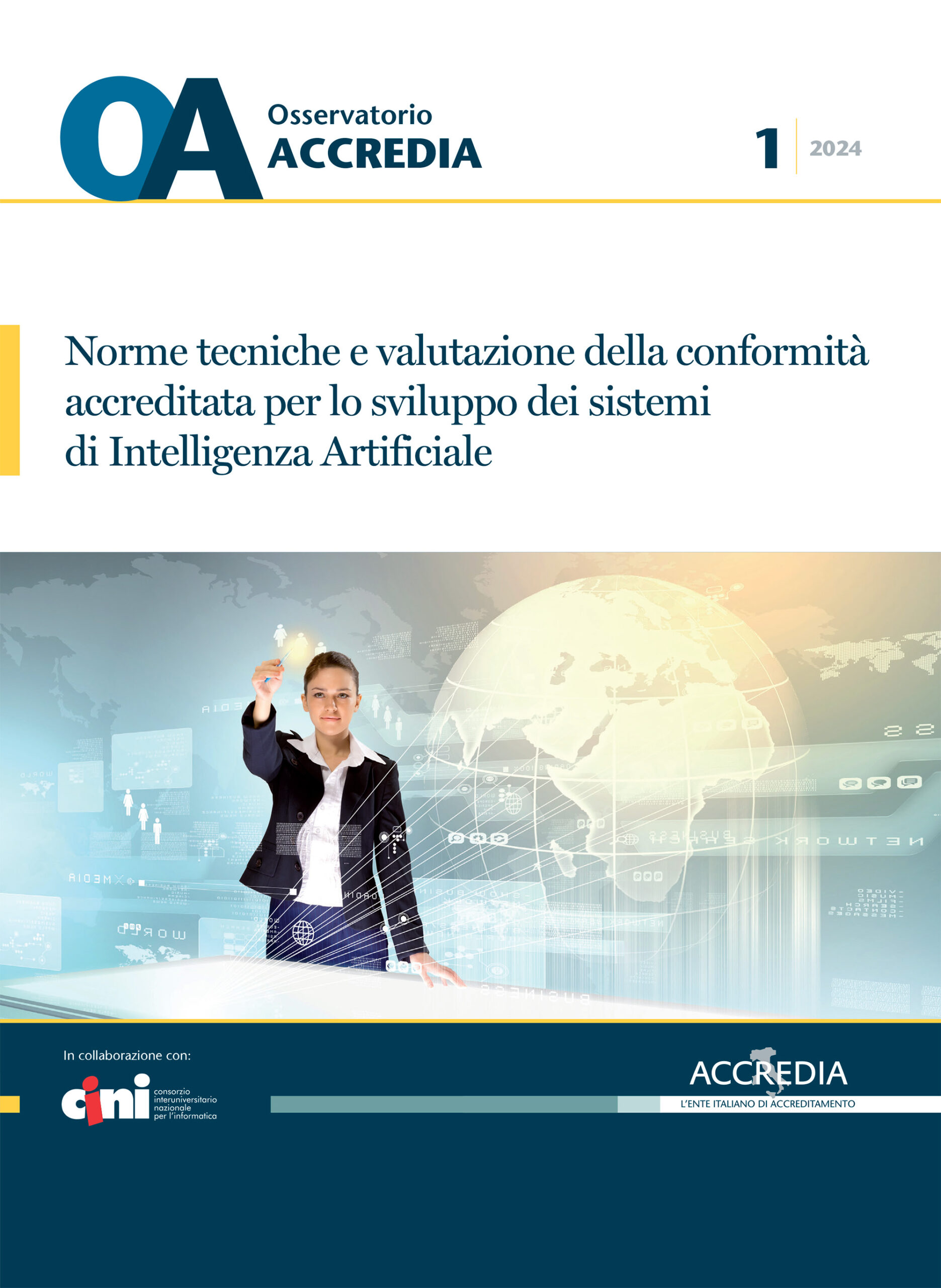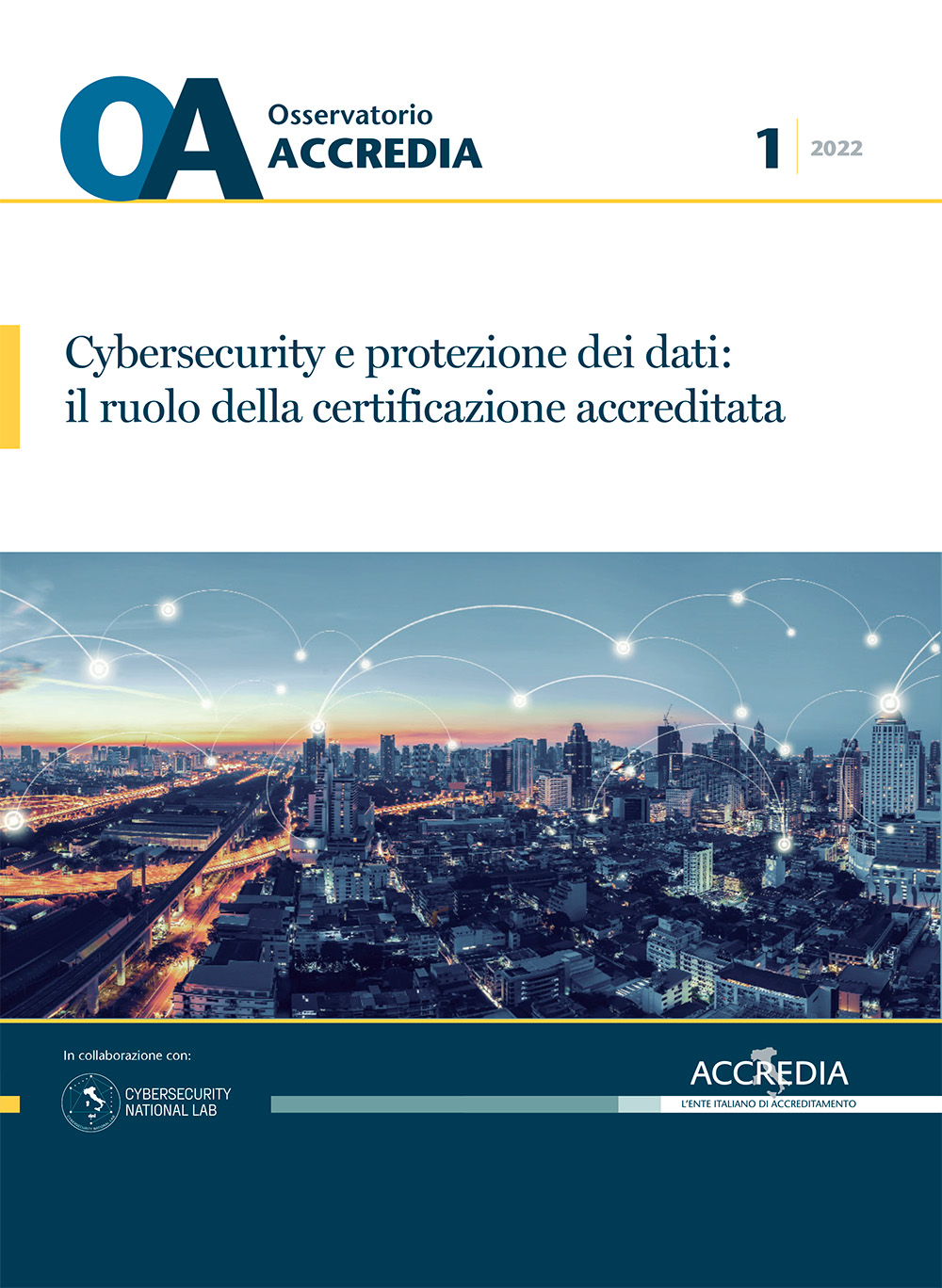Digitalization
Cyber risks and data protection
Accreditation is recognized by European and national regulations as an essential tool for ensuring the security of IT systems and Artificial Intelligence applications.
Accreditation and conformity assessment help to protect systems and citizens from the risks associated with protecting their data in the face of increasingly accelerated digitization processes.
Organizations that use the services provided by accredited bodies are supported in implementing effective measures against cyber risks and in ensuring that AI solutions are secure and reliable.
Accreditation helps build a framework of trust for data protection and the reliability of emerging technologies.
Accreditation and cybersecurity
The services offered by accredited certification and inspection bodies and laboratories are crucial in mitigating cyber risk, protecting productive activities and citizens.
Growing awareness of cyber risks and their impact on productive activities and citizens has made cybersecurity a top priority for Governments, Institutions, and companies, becoming one of the main objectives at the European level.
It is therefore important to adopt a proactive approach that not only prepares organizations for attacks but also enables them to detect, contain, and respond effectively to cyber threats. A “systemic” strategy, involving different sectors of society and the productive world, is more effective in mitigating cyber risks and strengthening the security of businesses and Public Administrations.
Compliance with technical standards and regulations, such as those established by the Cybersecurity Act (EU Regulation 2019/881), is crucial for developing and implementing effective strategies. Applying these standards also makes it possible to demonstrate the validity and correctness of the actions taken through objective references.
The accredited services offered by accredited certification and inspection bodies and laboratories are crucial in mitigating cyber risk because they ensure impartiality and competence.
Accreditation and Artificial Intelligence
Innovation and security require clear safeguards and rules. The AI Act (EU Regulation 1689/2024) introduces the obligation of verification by a notified body for high-risk AI systems.
Artificial Intelligence (AI) is one of the greatest opportunities for economic innovation of our time, with a growing impact on the industrial and service sectors. However, for AI to be effectively integrated into these sectors, a clear and precise regulatory framework is needed, in which conformity assessment and accreditation play a crucial role.
The new AI Act (EU Regulation 1689/2024) adopts a risk-based approach, classifying AI systems into different risk categories and establishing various levels of control and monitoring. For high-risk AI systems, in certain specific cases, verification by a notified body is required. In particular, in the field of biometrics, Article 43 of the Regulation establishes the obligation to use a notified body when:
- The harmonized standards referred to in Article 40 do not exist and the common specifications referred to in Article 41 are not available.
- The supplier has not applied the harmonized standard or has only applied part of it.
- The common specifications referred to in point (a) exist, but the supplier has not applied them.
- One or more harmonized standards referred to in point (a) have been published with a restriction and only on the part of the standard that is subject to restriction.
Furthermore, for systems regulated by other EU acts listed in Annex I, Section A of the Regulation (12 regulatory acts concerning, for example, lifts, toys, medical devices, the machinery, etc.), the supplier must follow the conformity assessment procedure already provided for in those acts, i.e., use a notified body.
Publication

Technical standards and accredited conformity assessment for the development of Artificial Intelligence systems
Starting from the Artificial Intelligence Act (AI Act), which provides a framework of rules for the protection of the fundamental interests of European citizens, the research explores the role that technical standards, conformity assessment, and accreditation will play in the implementation of the rules and in the assurance of high-risk systems.

Cybersecurity and data protection: the role of accredited certification – 2022
The study analyzes the role of accreditation as a guarantee within the framework of the European Union’s Cybersecurity Strategy, which aims to ensure a global and open Internet, identifying the tools to protect the security of fundamental rights, an objective reinforced by the Cybersecurity Act, implemented in Italy with Legislative Decree 123/2022, and by Law 109/2021.
Digitalization in Conformity Assessment in Italy – 2022
The survey shows how the ICT (Testing, Inspection, and Certification) industry has been able to digitize most of its conformity assessment activities, partly in response to the need for remote working imposed by the COVID-19 pandemic, and measures the level of digital maturity of accredited subjects, studying their technical, organizational, and strategic aspects.